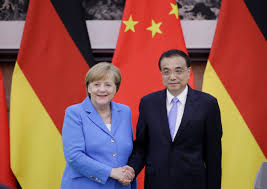Safeguarding multilateralism for a better world

Beijing: In a world where trade protectionism and isolationism are rising, the consensus to reverse this destructive trend and uphold multilateralism is fortunately and constantly expanding globally.
The international community is in an urgent need of a systematic approach to bolstering multilateralism. China, as always a champion of all-win cooperation and an open world economy, can offer some useful clues by trying to answer three fundamental questions.
The first one is why we need to give multilateralism a boost. The days when the law of the jungle ruled have gone. No nation can survive as an isolated island in this increasingly interconnected world because such daunting problems and challenges as climate change and terrorism need global solutions and a concerted drive.
While attending the 11th BRICS summit in Brazil last week, Chinese President Xi Jinping noted that the essence of multilateralism is that international affairs should be addressed through extensive consultation rather than decided by one country or a few. He also said that no country is born to be dominant, and no model is destined to be superior.
Whenever differences or disputes emerge, dialogue and consultation should always be a better option. The willful use of force and power politics should be rejected.
Secondly, what is the ultimate goal of promoting multilateralism? The obvious answer is to build a better world that enjoys lasting peace and stability, and common prosperity.
China has proposed that nations of the world come together to build a community with a shared future for mankind. This notion has gained growing recognition around the world and been incorporated into a number of UN documents.
While addressing the Group of 20 summit in Buenos Aires last year, Xi said: “Greater coordination and complementarity among countries meet the need of productivity growth. They will also shape the future of relations of production. In this process, countries are increasingly becoming a community with shared interests, shared responsibilities and a shared future.”
Therefore, the third question is how to build such a desired better world by championing multilateralism.
China believes that action is the only option. A concrete step forward, even a small one, is no less valuable than an unfulfilled guiding principle. Beijing’s adherence to and promotion of multilateralism is reflected in concrete actions.
On its unswerving support to the UN-centered system of international institutions, China is now the largest contributor of peacekeepers among the five permanent members of the UN Security Council, and has been actively implementing the UN 2030 Agenda for Sustainable Development.
The Belt and Road Initiative is an important international public good that China contributes to global cooperation for common development. It has also evolved into a crucial platform for the world to bring about high-quality cooperation amid growing fear of protectionism.
Faced with profound changes rarely seen in a century, the majority of countries in the world have shown a united front on supporting multilateralism. After reaching the consensus on the issue, they must now attest to their resolution.





